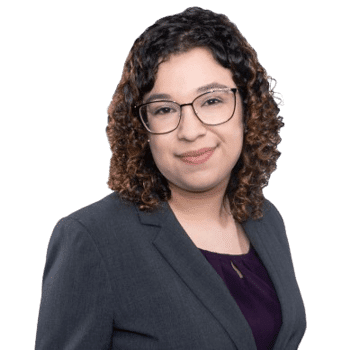What Is High Functioning ADHD?
People with high-functioning attention-deficit/hyperactivity disorder (ADHD) have learned how to mask or compensate for their symptoms and have usually achieved academic and workplace success. They function well in the world and often don’t appear to have ADHD. Many times, people with high-functioning ADHD do get to a point where they have difficulties masking their symptoms and compensating for the functional impairments of their ADHD. They become overwhelmed and their work and personal lives suffer.
What Is ADHD?
Attention-deficit/hyperactivity disorder (ADHD) is a neurodevelopmental disorder that affects adults and children. The National Institute of Mental Health (NIMH) reports that 4.4% of U.S. adults experience ADHD.
The Diagnostic and Statistical Manual of Mental Disorders, 5th Edition (DSM-5), categories ADHD into 3 types: inattentive; hyperactive-impulsive; or, combined. The DSM-5 lists these symptoms as part of an ADHD diagnosis.
The symptoms of inattentive type include:
- Disorganization
- Avoiding tasks that require a lot of effort
- Careless mistakes on tasks
- Difficulty holding attention to tasks you don’t prefer
- Difficulty maintaining focus when spoken to directly
- Failure to finish tasks
- Losing things or being forgetful
- Being easily distracted
The symptoms of hyperactive-impulsive type include:
- Getting out of one’s seat at inappropriate times
- Running or climbing at inappropriate times
- Being unable to work or play quietly
- Being unable to wait one’s turn
- Fidgeting
- Moving as if “driven by a motor”
- Excessive talking
- Blurting answers before the question is finished
- Interrupting others in conversation
The symptoms of ADHD for adults may look a little different than how ADHD presents with children. Adults with ADHD may:
- Have trouble getting started on tasks
- Struggle with self-organization and prioritization
- Struggle continuing tasks that require sustained mental effort
- Be impulsive or have low frustration tolerance
- Be hyperactive (less salient symptom in adults)
- Live a chaotic lifestyle
- Be diagnosed with other mental health conditions
- Abuse substances like drugs or alcohol
What Is High-Functioning ADHD?
People who have ADHD function on a spectrum with varying severity. When someone has high-functioning ADHD, that person falls on the higher end of the spectrum. Common experiences with people who have high-functioning ADHD include:
- Experiencing some severe symptoms that greatly impact their lives but performing well in other areas
- Having mild enough ADHD symptoms to function with minimal disruption to their lives
- Compensating for more severe symptoms to complete necessary tasks to get through each day
Because they have learned to compensate for deficits and mask symptoms, people with high-functioning ADHD usually make it through childhood without being treated or seen as having ADHD. If they do see a professional, they often get treated for something else like anxiety or depression. As an adult, life with ADHD can become overwhelming and their learned compensation strategies may not hide their symptoms. Adults with ADHD may seek out help for anxiety or depression when the underlying issue is high-functioning ADHD.
High Functioning ADHD Symptoms
Adults with high-functioning ADHD experience a wide range of symptoms. Some symptoms related to high-functioning ADHD include:
- Trouble focusing and completing tasks
- Reading difficulties (don’t read or take a long time to read something)
- Trouble attending to conversations and following meetings
- Procrastination and poor time management
- Forgetfulness (appointments, facts, supplies)
- Daytime sleepiness
- Moving around priorities to complete preferred tasks first (do less important, less urgent, and immediately rewarding first)
- Impulsive, impatient and argumentative
People with ADHD have learned how to function and present themselves well, which can lead to some unique experiences. Some concerns that are unique to a person with high-functioning ADHD include:
- Instead of accepting the reality of how ADHD symptoms make life more difficult, they think it’s a personal weakness and may feel incompetent.
- They’ll dedicate a lot of time and energy to perform and present well which leads to exhaustion and burnout.
- They work very hard to hide any indication of their struggles and often feel isolated because they don’t share this experience with anyone.
High-Functioning ADHD Diagnosis
Because of their high-functioning presentation, many people with high-functioning ADHD don’t receive a diagnosis until adulthood and even then often get misdiagnosed. They may appear too high-functioning for ADHD. Sometimes, symptoms of another mental health condition get noticed more readily than the dysfunction from the ADHD.
If you’re looking for ADHD assessment and treatment as a high-functioning adult, it is important to look for a psychologist, mental health therapist, or psychiatrist who specializes in testing and treating adult ADHD.
Testing for ADHD in Adults
Different screening tools can be used to help with the ADHD diagnosis. Some of the various assessment and evaluation tools used in diagnosing adult ADHD include:
- Copeland Symptom Checklist for Adult ADHD
- Wender Utah Rating Scale
- Brown Adult ADHD Scale
- Pilot Adult ADHD Self-Report Scale (ASRS)
- Conner’s Adult ADHD Rating Scale (CAARS)
Can You Be Successful with ADHD?
Many people with ADHD reach high levels of success, including several famous people who have openly shared their stories of success with ADHD. Some of these famous people with ADHD include:
- Olympic gymnast Simone Biles
- Musician Dave Grohl
- Olympic swimmer Michael Phelps
- Astronaut Scott Kelly
- Journalist Lisa Ling
Many people with high-functioning ADHD use compensation strategies to help them function at a higher level. Some common compensation strategies include:
- Working hard to attend to and complete tasks
- Learning how to understand the important facts from only partially reading information
- Pushing through task completion right before the deadline
- Using notes, reminders, alarms and notifications for reminders
- Prioritizing tasks by importance and relevance
Coping With ADHD
Implementing these ADHD coping skills can help when struggling with ADHD symptoms.
- Take frequent breaks when working on a task or activity. Setting a timer or alarm can remind you to take a break.
- Create a workspace that does not have clutter or distractions.
- Create a daily routine that focuses on small steps and tasks.
- Use a planner and/or time management system.
- Make a daily list for personal and work life.
- Break large tasks into smaller, achievable steps.
- Use automated tools such as online bill pay for routinely scheduled needs.
- Use a calendar to track scheduled meetings, appointments, events and other activities.
- Research and learn about ADHD.
- Create a self care routine that includes a healthy diet, regular sleep schedule and exercise. Don’t forget about hobbies, socialization, and relaxation.
Treatment for High Functioning ADHD
Unfortunately, no cure exists for ADHD. However, many people can successfully treat their symptoms of ADHD through a combination of medication, therapy and coping skills.
Medications
Medications for ADHD can help people to manage their symptoms and improve their daily functioning. Medications can help people to:
- Improve attention
- Improve work and/or school performance
- Improve memory
- Reduce psychomotor activity
- Decrease aggression and irritability
- Decrease disruptive behavior
Doctors usually first prescribe stimulant medications to treat ADHD. Because these medications do present a risk for addiction and abuse, prescribers will work with patients to carefully monitor symptoms and effectiveness.
Stimulant medications include:
- amphetamines (Adderall, Dexedrine, DextroStat)
- methylphenidate (Ritalin, Focalin, Methylin, Concerta)
Some patients and doctors choose to use another class on non-stimulant medications to treat ADHD. They may choose non-stimulant medications or combine a non-stimulant with a stimulant to:
- Meet a patient’s preference
- Avoid side effects from the stimulant medications
- Improve the treatment outcome
- Improve effectiveness
Non-stimulant medications include atomoxetine (Strattera), guanfacine (Intuniv) and clonidine (Kapvay).
Behavioral Therapy
In addition to taking medications to help manage symptoms, therapy can help a person learn how to better manage the overwhelming life that comes with ADHD. A licensed mental health professional can offer cognitive behavioral therapy (CBT) or behavior therapy to help teach important skills for the adult struggling with challenges and symptoms of ADHD.
Cognitive behavioral therapy (CBT) can teach someone how to restructure problematic thought patterns that have developed over the years. Through CBT people can learn:
- How to improve focus and concentration
- How to adjust to life changes
- How to think before acting
- How to manage impulsive behavior choices
Behavior therapy can teach skills to change problematic behavior patterns. During behavior therapy, the therapist might teach:
- Structured routines and how to use them
- Social and communication skills
- Using verbal positive reinforcement for positive changes
- Time management and organizational skills
If you or someone you know is living with high-functioning ADHD, the Nobu app can help. The Nobu app offers free mental health support including learning coping skills, journaling prompts and goal setting. You can also connect to a mental health professional to address ADHD during online therapy sessions. The app is available for download on the Apple Store and the Google Play Store.

Edited by – Melissa Carmona
As the content manager at Advanced Recovery Systems, Melissa Carmona puts years of writing and editing experience to work helping people understand substance abuse, addiction and mental health disorders. Melissa is a Florida State University graduate… Read more.

Written by – Sara G. Graff, LCSW
Sara Graff is a Licensed Clinical Social Worker (LCSW) in Florida. She earned both her Bachelor of Arts degree in Psychology and her Master of Social Work (MSW) degree from Washington University in St. Louis. Sara has over twenty five years as a social worker and has worked in many areas of mental health… Read more.

Medically Reviewed by – Dr. Angela Phillips
Angela is a licensed therapist and clinical researcher, and has worked in public, private, government, and not-for-profit organizations, across clinical and research-oriented roles. Angela’s clinical and research experience has included suicide prevention, cognitive behavioral… Read more.
- American Psychiatric Association. “Diagnostic and Statistical Manual of Mental Disorders: DSM-5. 5th edition.” 2013. Accessed June 16, 2022.
- Gentile, J., Atiq, R., and Gillig, P. “Adult ADHD.” Psychiatry, August 2006. Accessed June 16, 2022.
- Gillette, H. “High-Functioning ADHD: Signs, Diagnosis, and Treatment.” PsychCentral.com. February 23, 2022. Accessed June 16, 2022.
- Littman, E. “I’m Smart, So I Should Be Able to Overpower ADHD. Right? ADDitudeMag. January 10, 2022. Accessed June 16, 2022.
- Lovering, C. “Exploring How ADHD Medications Work.” PsychCentral.com. December 15, 2021. Accessed June 16, 2022.
- National Institute of Mental Health. “Attention-Deficit/Hyperactivity Disorder.” Accessed June 16, 2022.
- National Institute of Mental Health. “Attention-Deficit/Hyperactivity Disorder: Statistics.” Accessed June 16, 2022.
- Palmini, A. “Professionally successful adults with attention-deficit/hyperactivity disorder (ADHD): Compensation strategies and subjective effects of pharmacological treatment.” Dementia & Neuropsychologia, January-March 2008. Accessed June 16, 2022.ADDitudemag.com. “Famous People with ADHD.” July 21, 2022. Accessed June 16, 2022.